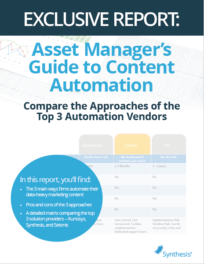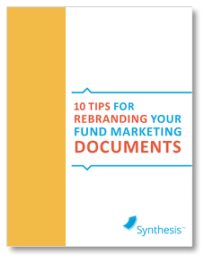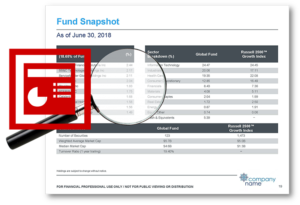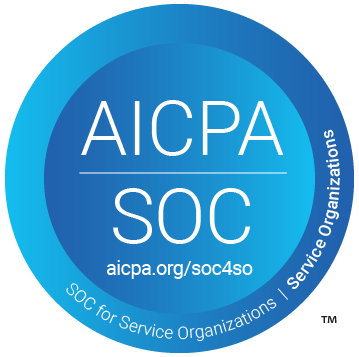The SEC’s New Modern Marketing Rule: Are You Prepared to Comply?

You’re probably already aware of SEC’s Modern Marketing Rule (Rule 206(4)-1), which replaces previous rules governing advertising by registered investment advisers, including asset managers and private funds.
You may even know these rules are scheduled to go into effect on November 4, 2022.
But does everyone in your firm who is involved in communicating with the public understand the new requirements? And, more importantly, is your firm on track toward meeting these requirements?
If you’re not, you’re not alone. According to Red Oak Compliance Solutions, less than 25% of their clients admit that they’ve fully instituted processes for complying with Rule 206(4)-1.
The good news is that most print and online marketing and advertising materials that asset managers produce already comply with SEC requirements.
However, the SEC’s new rules are designed to close certain loopholes, particularly concerning the way performance information is presented, as well as encompass the reality that messaging platforms like email and social media have become as important as pitchbooks, and web sites in conveying marketing and sales information to clients and prospects.
And, if that wasn’t enough, the SEC will now require asset managers to provide extensive documentation of the processes they used to create, review, approve and distribute advertising materials.
Is there a silver lining here? Perhaps, since the SEC is finally going to allow asset managers to use client testimonials and endorsements in their advertising.
Let’s take a closer look at the key provisions that will create the most work for asset managers—and what they need to do now to comply with the new rules.
Advertising now encompasses emails
The days when salespeople or client service managers could cut and paste pre-approved performance charts from pitchbooks and fact sheets into emails and send them to clients and prospects without compliance approval are over.
The SEC now considers any email that includes hypothetical performance information—even if it’s sent to one person—to be advertising.
Which means that these emails should be reviewed and approved by Compliance before they are sent. (The exceptions to this rule are messages that contain client-specific actual investment information such as account statements or performance reports.)
While the SEC hasn’t clearly defined these requirements, asset managers should assume that auditors will want to know not only who the recipients are, but what they are as well (clients, prospects, individual investors, financial advisors, consultants, etc.)
Sales and client service associates should be able to document most of this information in CRM—provided that they’re trained how to do so (and understand that they have to do it).
“Fair and balanced” performance
The SEC is closing loopholes that allowed some asset managers and private funds to present performance information in “false and misleading ways.” Specifically, asset managers are now prohibited from:
- Showing gross performance of a fund or strategy without also showing net performance.
- Using “cherry-picked” performance timeframes (like a six-week period where a fund outperformed the market) instead of industry-standard periods such as monthly or quarterly results.
- Omitting relevant material facts that could lead to misleading conclusions, such as claiming that a fund or strategy performed well during a certain period without showing performance of a benchmark that might have delivered better returns during the same timeframe.
- Using performance composites for separately managed account strategies that don’t incorporate data from all underlying individual accounts that use the strategy.
- Using hypothetical performance examples (other than those generated by interactive portfolio analysis tools) that don’t align with the financial and investment objectives of the intended audience.
- Using customized benchmarks (like those used with specialized micro-sector ETFs) without providing detailed disclosures on how the benchmark was created and whether the asset manager paid an outside research firm to create that benchmark.
- Incorporating historical performance information for a fund or strategy that was managed by a predecessor firm unless the new owners can fully substantiate there is similarity between the personnel and accounts at the former owner and the new firm.
Beyond making sure that misleading information is avoided, asset managers will also need to fully document the processes they use to come up with performance returns. Where the raw data came from. How the numbers were calculated and validated and who managed this process.
Testimonials and endorsements
Most salespeople would love to include rave reviews from investors in their pitchbooks and email messages. So, they’ll be happy to know that the SEC now allows client testimonials to be used in advertising.
However, there will be strings attached.
Advertisements will need to “clearly and prominently disclose” if the person or organization giving the testimonial or endorsement is a client or non-client and whether they are receiving compensation for their kind words.
Expect that SEC will also expect firms to fully document the processes they used to gather these testimonials. And – one more caveat: Firms must implement the whole rule before they can start using testimonials in their marketing strategy.
Preparing for the change
The SEC wouldn’t be enacting these rules unless they intended to make sure firms were following them.
Thus, asset managers should assume that at some point the SEC will knock on their doors to conduct advertising and marketing audits.
Documentation will probably be the most challenging aspect, since the SEC hasn’t clearly defined best practices for keeping detailed records of all sales and marketing communications.
This lack of clarity doesn’t give asset managers a license to do this ad hoc. Long before the November deadline, asset managers will need to have procedures in place to fully document their internal processes, workflows and checkpoints for creating, reviewing, distributing and archiving advertising materials.
Compliance departments can’t shoulder this responsibility alone.
This will need to be an all-hands-on-deck effort, with Sales, Marketing, Compliance, Investment Management and Operations teams working closely together to review the way performance is communicated in pitchbooks, fact sheets, websites and other advertising materials to make sure they conform to the SEC’s “no misleading” policies and make adjustments if necessary.
This is also a good time for portfolio managers and analysts to fully document the processes they use to collect, calculate and validate performance metrics used in advertising materials.
Sales and client service teams will need to capture information about the intended recipients of advertising emails. Firms can get a head start on this by implementing processes for “tagging” email recipients as individual or institutional investors, financial advisors, consultants or other audience segments in their CRM systems and email and marketing automation platforms.
If your firm plans on using testimonials, create a standardized form that captures not only the testimonial itself but any relevant background information about the client or firm providing it, including compensation arrangements.
Investing in sales and marketing technologies may streamline compliance
The SEC’s more rigorous email documentation requirements may require asset managers to upgrade their email marketing, sales enablement, marketing automation and CRM platforms.
The rules may also convince firms to replace time-consuming and error-prone manual marketing production processes with today’s highly sophisticated tools.
These tools enable firms to load performance and holdings data and all related descriptive language and disclosures from various sources into a central data repository.
Marketing associates, salespeople and client service managers can then draw upon this repository to instant import data into predesigned templates to create customized, compliance-review-ready pitchbooks, fact sheets, prospectuses, shareholder reports and other advertising materials. Rules-based workflows ensure that correct disclosures are included in the right spot on every page.
Content automation applications are even more effective when they’re used in tandem with advertising review software.
When integrated successfully, a salesperson or marketing associate can quickly generate a customized pitchbook or fact sheet and then instantly submit it for Compliance review. Every step of the content production and review process is fully documented and archived, making it easier for marketing teams to provide detailed advertising records for future SEC audits.
Complying with the new SEC advertising rules is going to create a burden for many asset managers. Even firms whose sales and marketing materials already comply with the SEC’s “fair and balanced” standards will still need to implement procedures and policies for documenting how these materials are created, validated and distributed.
Investing in technologies that make it easier for firms to fulfill these requirements may seem like a hefty investment at first but save money over the long run if it reduces the costs and risks of requiring human effort to fulfill them.
And, considering that violations of the SEC rules could result in hefty fines and reputational damage, asset managers can justify the costs by considering investing in marketing technologies as an additional way to strengthen risk management and increase operational efficiency.
Have a question or want to suggest a correction? Email us at [email protected].
Here are some related resources that might interest you:
 From the Blog: The First Step To An Effective Pitchbook Strategy for Investment Managers |  From the Blog: Pitchbook Problems? 3 Ways Technology Can Help |  From the Blog: 3 Factors that Complicate Factsheet Automation |





 Compare the Top 3 Finserv Content Automation Vendors [White paper]
Compare the Top 3 Finserv Content Automation Vendors [White paper] Create Pitchbooks the Drive Sales [White paper]
Create Pitchbooks the Drive Sales [White paper] Build vs. Buy: Should Your Financial Services Firm Outsource or Insource Marketing Technology? [White paper]
Build vs. Buy: Should Your Financial Services Firm Outsource or Insource Marketing Technology? [White paper]  10 Tips for Rebranding your Fund Marketing Documents [White paper]
10 Tips for Rebranding your Fund Marketing Documents [White paper]




